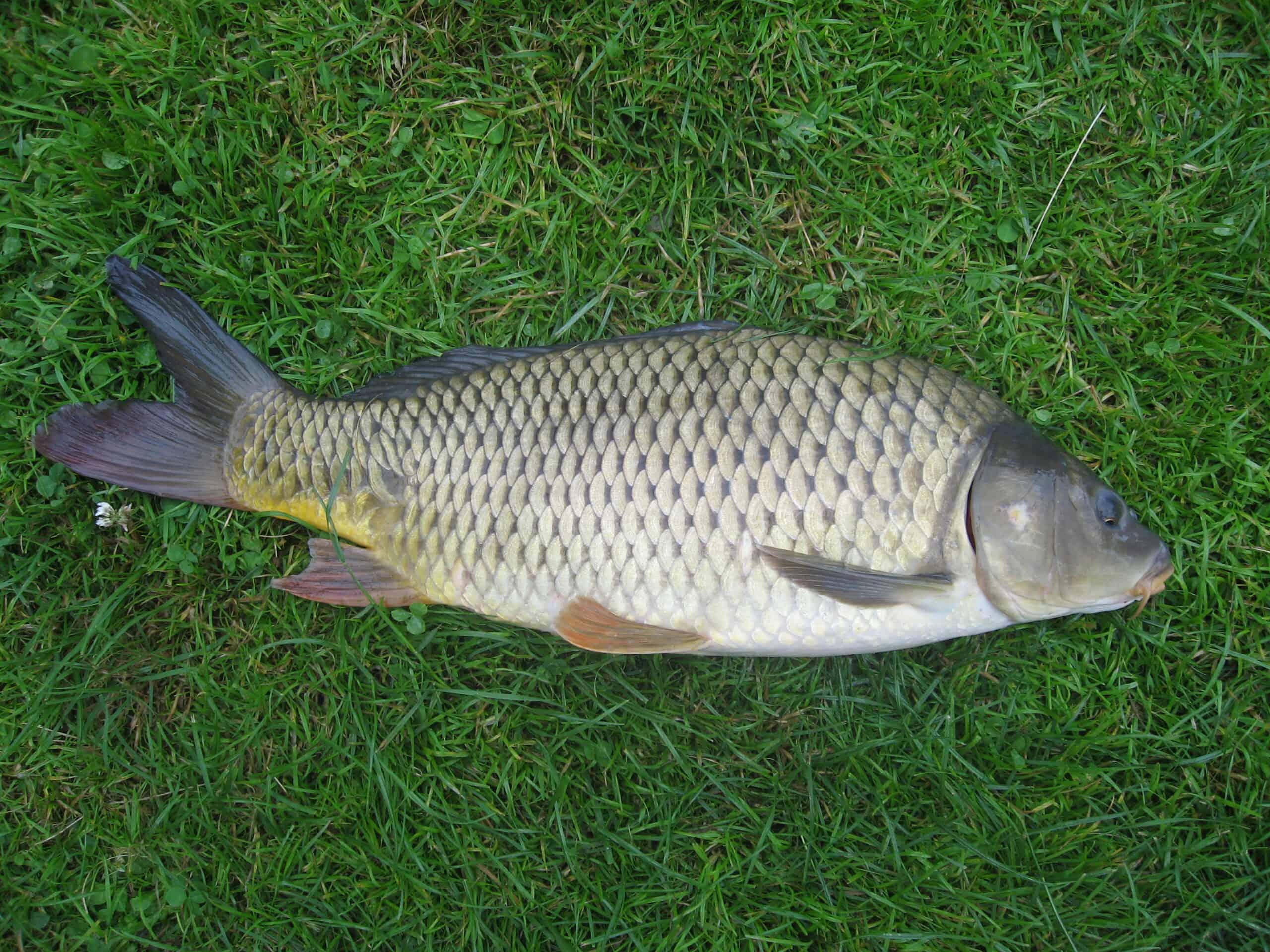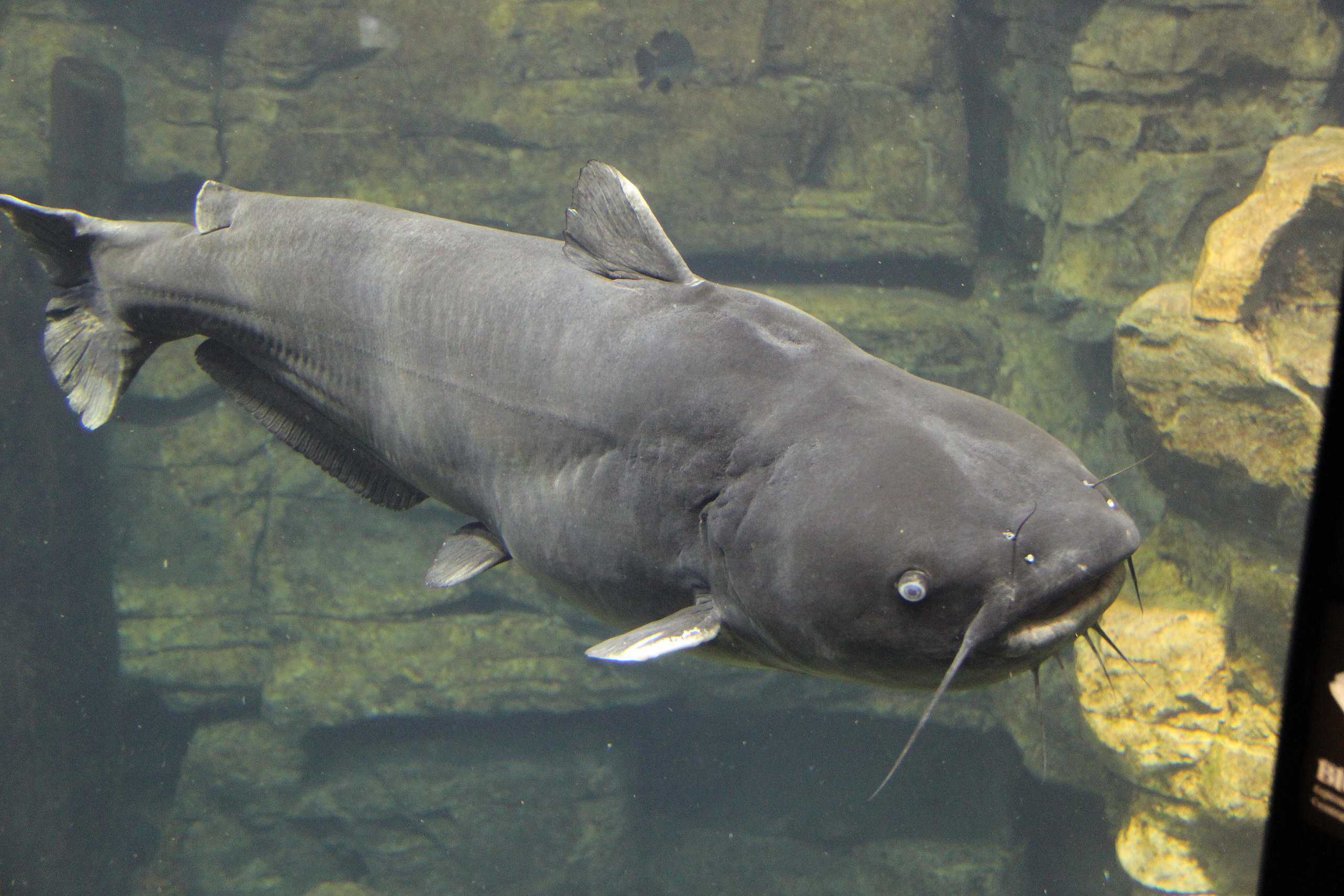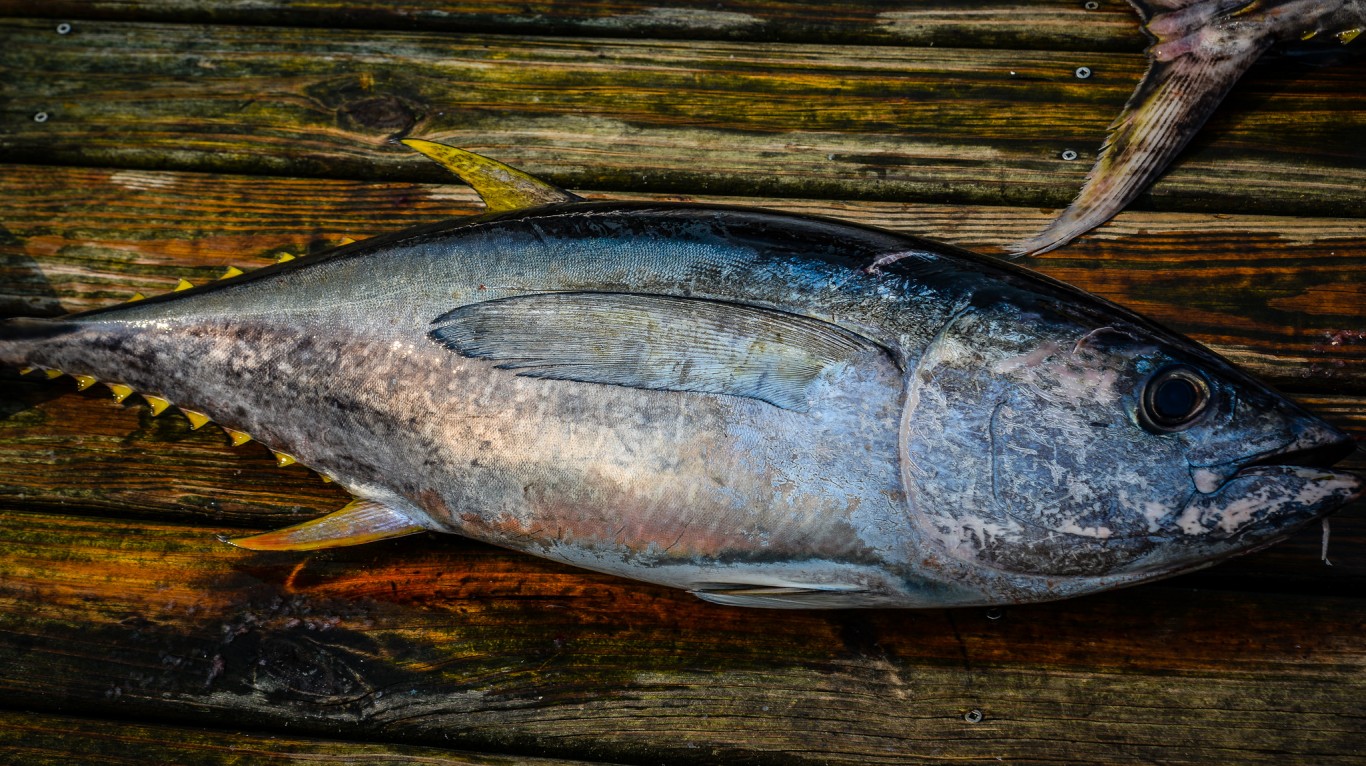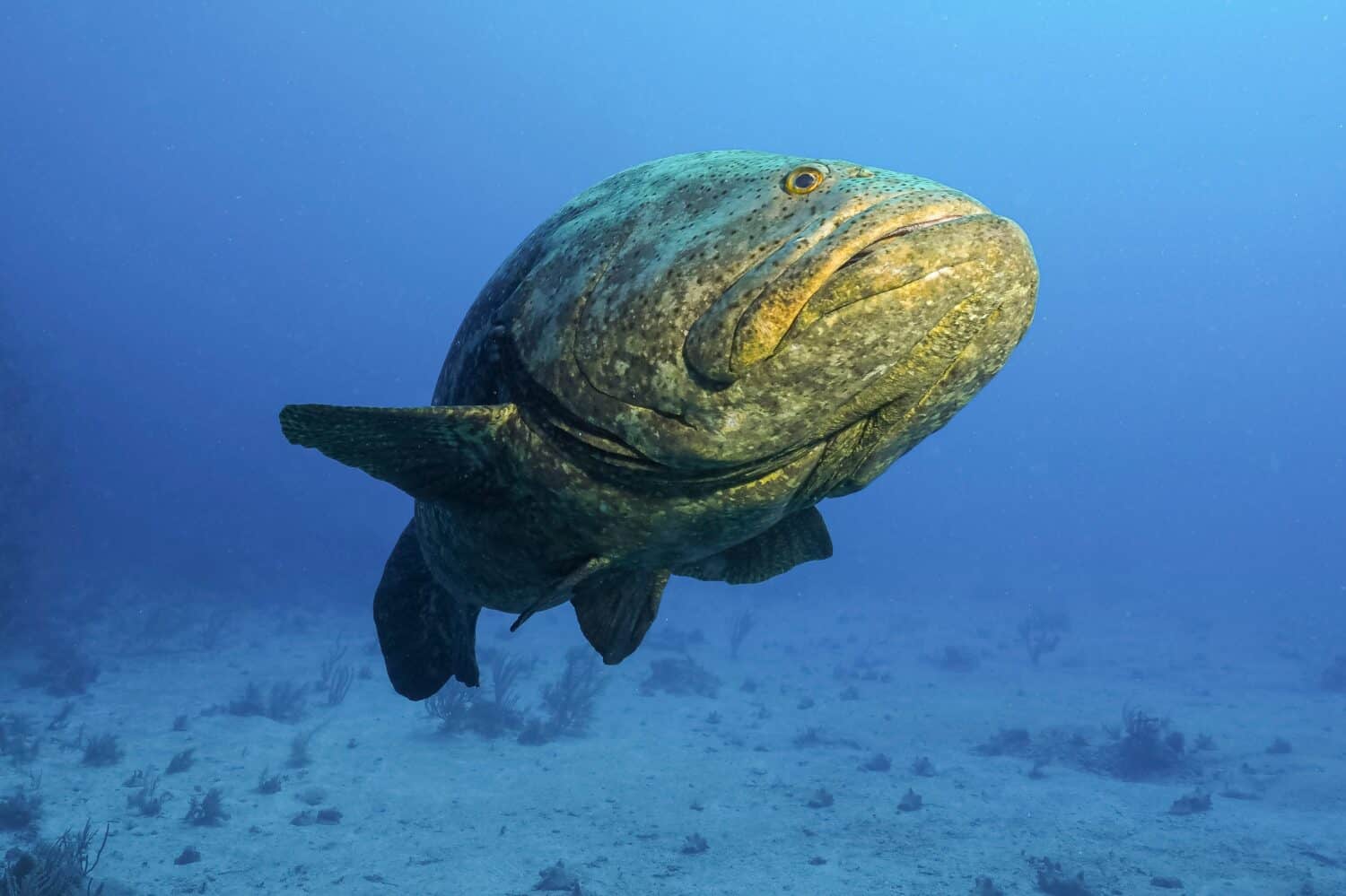
Florida is the third most populous state in the U.S., trailing only California and Texas. However, the number of humans in Florida routinely swells far above the state’s 22.6 million permanent residents. Florida is the most visited state in the nation. Over 60% of American adults have been to the Sunshine State at least once.
Millions of visitors flock to Florida each year to enjoy its 663 miles of sandy beaches. The state also boasts renowned tourist destinations such as SeaWorld Orlando, Busch Gardens Tampa, the Kennedy Space Center, Universal Studios, and, of course, Disney World. However, not all Florida visitors are there to see the most famous Mouse on the planet. Many are there for the fish, and not the ones swimming at EPCOT’s “Sea Base.” Florida is a Mecca for fishermen and fisherwomen. Here’s a look at Florida’s unparalleled access to top-tier recreational fishing, along with the largest freshwater and saltwater fish ever caught in the state.
Florida Waters
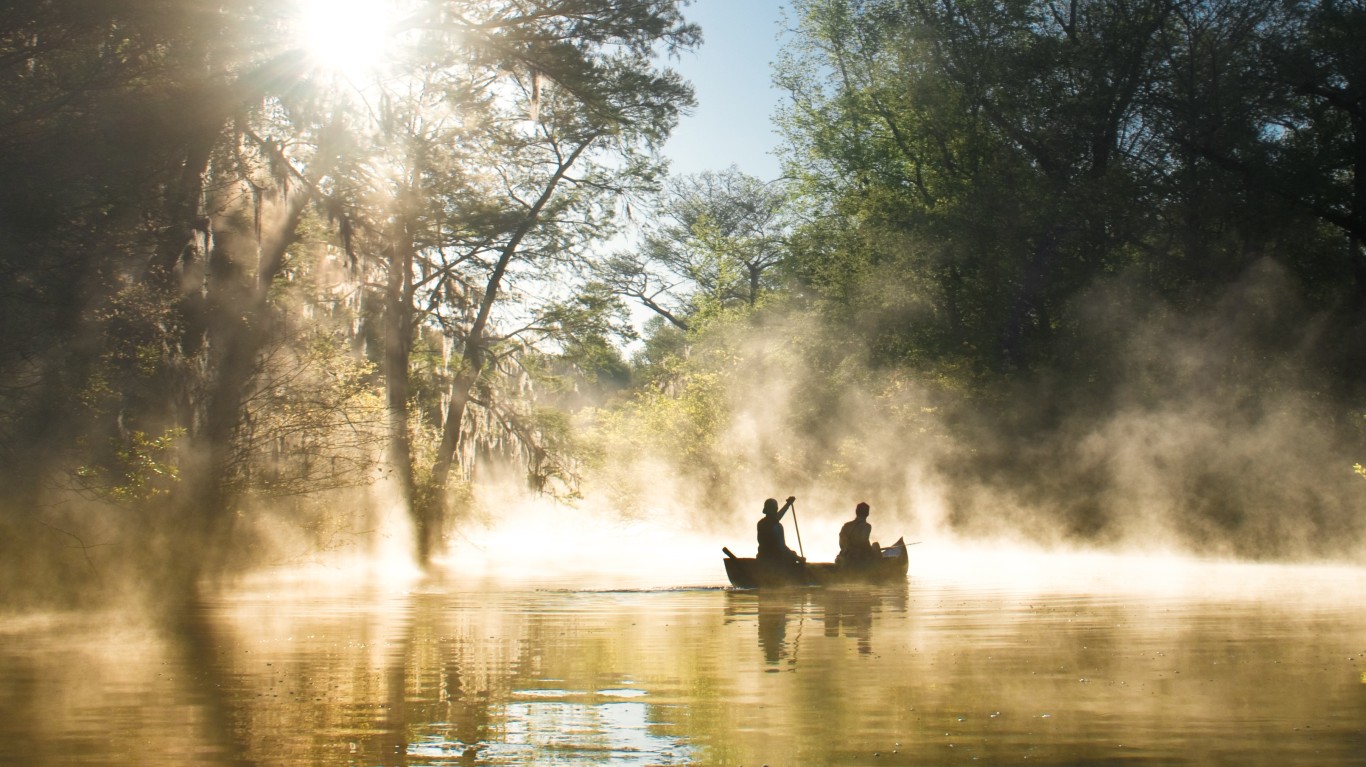
Florida boasts 12,133 square miles of total water area. Nearly 18.5% of the state’s total area is covered by water. The state features approximately 7,700 lakes with surface areas of ten acres or more. Florida’s rivers meander 25,949 miles throughout the state. As a peninsula, Florida’s 1,350 statute miles of coastline also offer ready access to the Atlantic Ocean and the Gulf of Mexico.
With all of this water, it’s no surprise that the Sunshine State is a top fishing destination in the United States. Florida sells more nonresident fishing licenses each year than any other state. All of these visiting anglers have learned what millions of Florida residents have always known: the state’s waters are teeming with prized game fish. The fishing in Florida is so exceptional that the state has been given the unofficial title of Fishing Capital of the World.
Big Fish, Big Business

According to the Florida Fish and Wildlife Conservation Commission (FWC), recreational fishing adds $6.1 billion to the Florida economy annually. It also supports well over 50,000 jobs in the state. The state is home to big fish, and that equates to big business. (Speaking of the state’s economy, here’s a look at how Florida’s job market compared to the U.S. over the last 47 years.)
Florida’s Fishing Records
Here’s a look at some of those big fish. The following list contains every Florida freshwater fishing record over 20 pounds and every saltwater record over 200 pounds, including the largest freshwater and saltwater fish ever caught in the Sunshine State.
FWC is the official holder of Florida state fishing records. The commission was the exclusive source of information for all of the record-setting fish listed below. World records were corroborated by the International Game Fish Association (IGFA), sportfishing’s governing body and official keeper of fishing world records.
Freshwater Fish
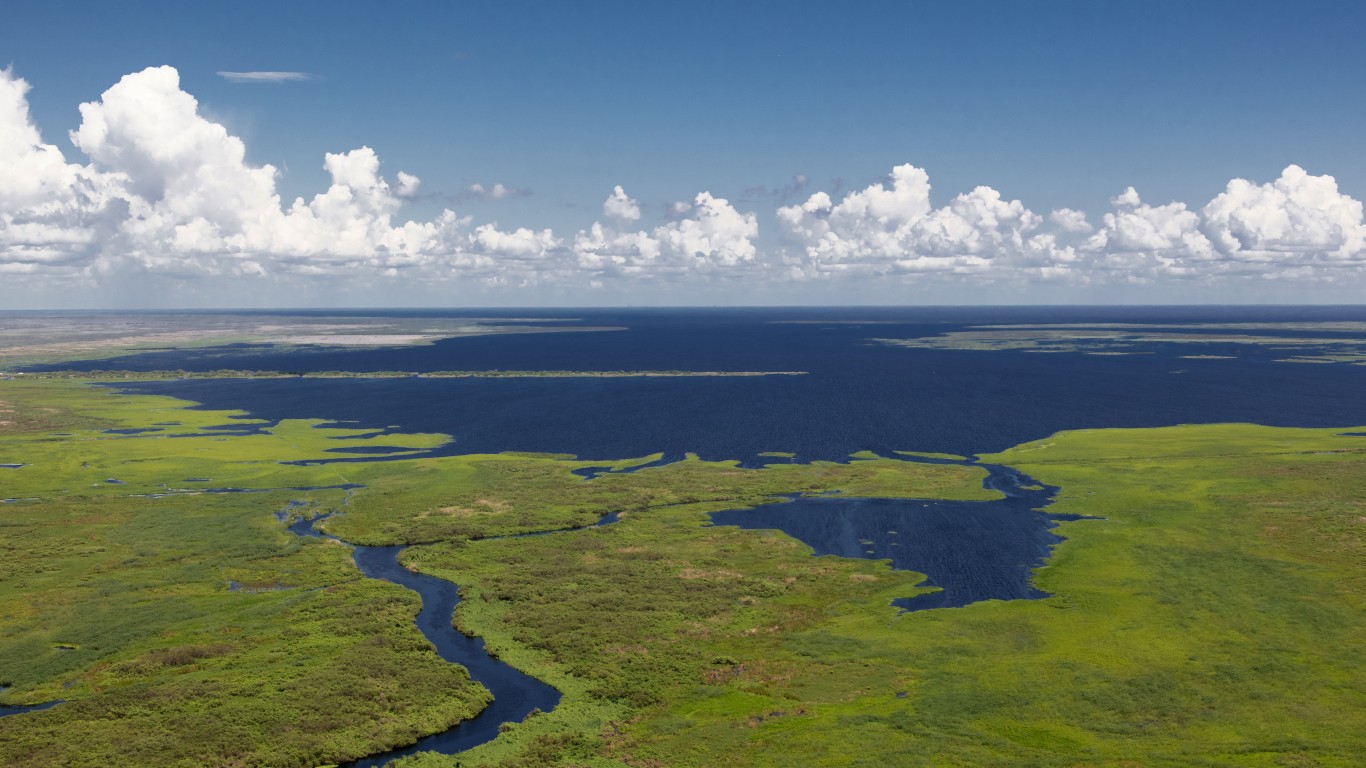
Whether it’s lakes, swamps, streams, or rivers, Florida offers a wealth of freshwater fishing opportunities. It is considered by many anglers to be the top state in the nation for bass fishing. Other freshwater species also proliferate in the state. Here are all of Florida’s state freshwater fishing records weighing over 20 pounds, including a gargantuan beast that is the largest freshwater fish ever caught in the state.
8. Largemouth Bass
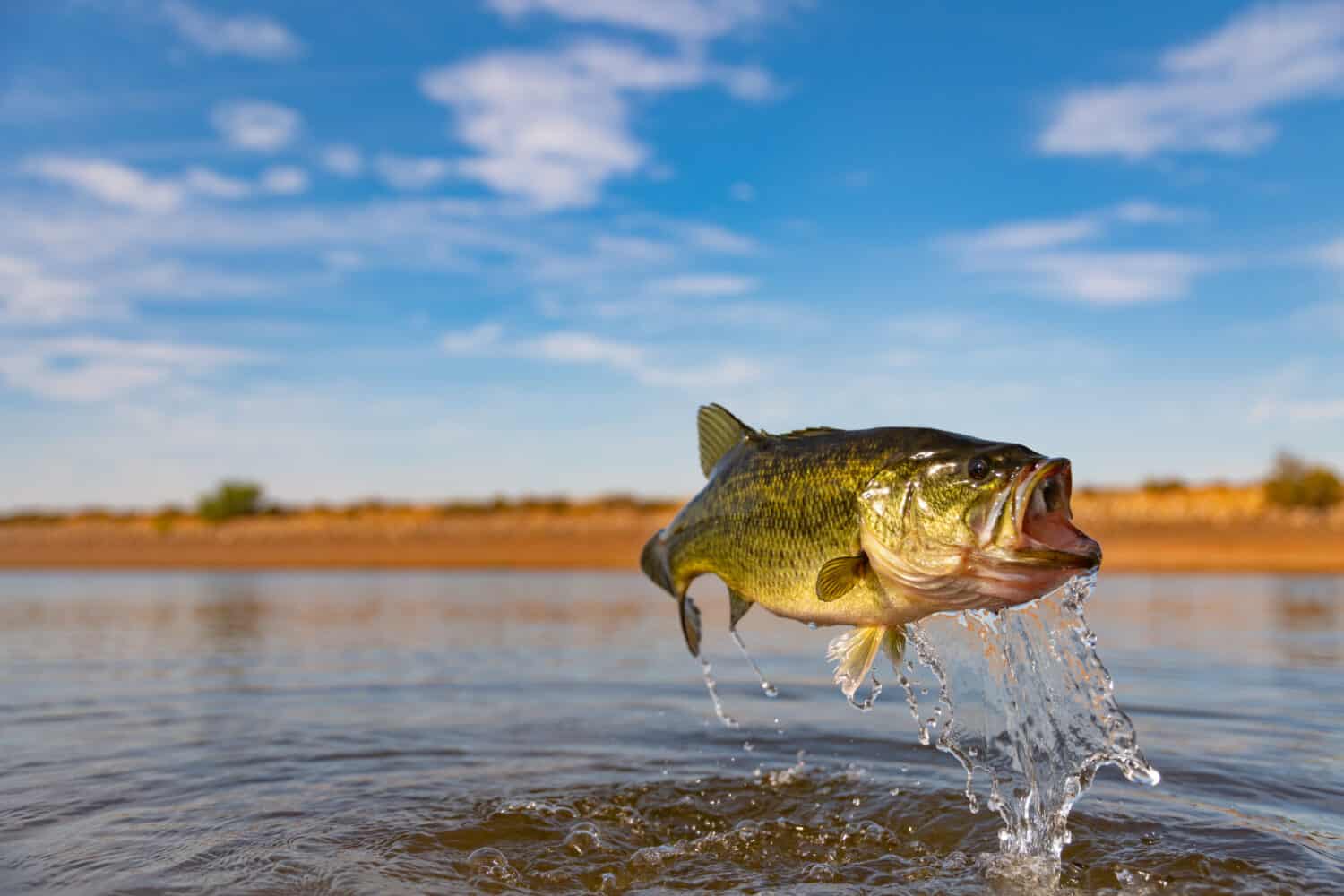
- Weight: 20.13 Pounds*
- Catch Location: Big Fish Lake, Pasco County
- Date: May 19, 1923
- Angler: Frederick Friebel
The largemouth bass is the most famous freshwater fish in Florida. This record dating back to 1923 is the oldest among all of Florida’s freshwater fishing records. It is also one of the most disputed.
FWC lists this giant 20+ pound largemouth bass in its record books, but it also notes the record is uncertified with this disclaimer: “This fish was weighed on a postal scale and witnessed, but an FWC (or GFC) biologist did not document it at the time to establish an official record.”
The largemouth bass which currently holds the certified state record in Florida weighed 17.27 pounds. Billy O’Berry caught that fish on July 6, 1986.
7. Common Carp
- Weight: 40.56 Pounds
- Catch Location: Apalachicola River, Gadsden County
- Date: May 24, 1981
- Angler: Bernard Rowan
This record catch is also uncertified. FWC states, “Strong evidence [for this record catch] exists, but not all the reporting requirements were met.”
Florida’s official record for a common carp is currently vacant. A fish must weigh at at least 35 pounds to qualify.
6. Longnose Gar
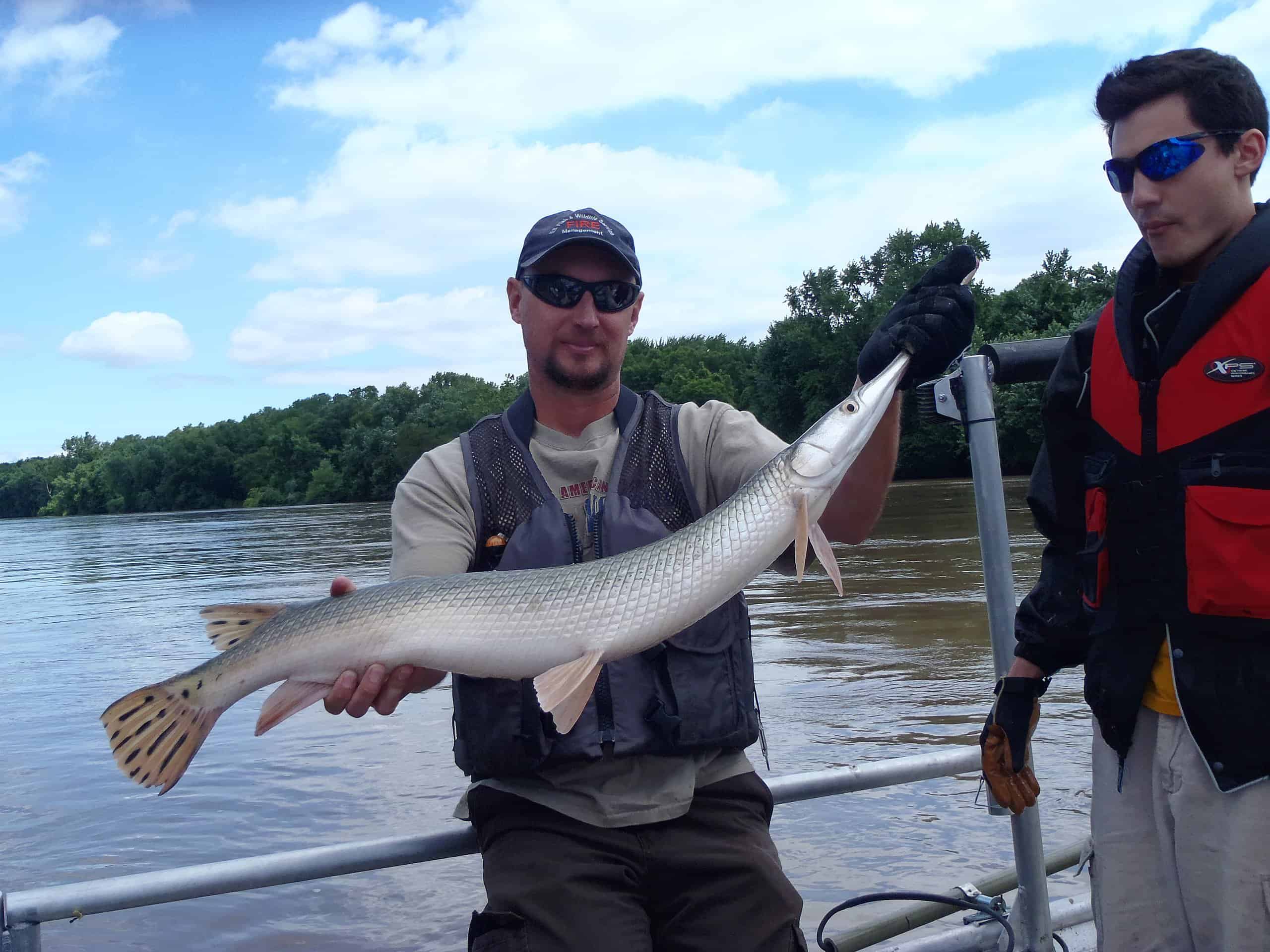
- Weight: 41 Pounds
- Catch Location: Lake Panasoffkee, Sumter County
- Date: April 14, 1985
- Angler: Evan Merritt
5. Striped Bass
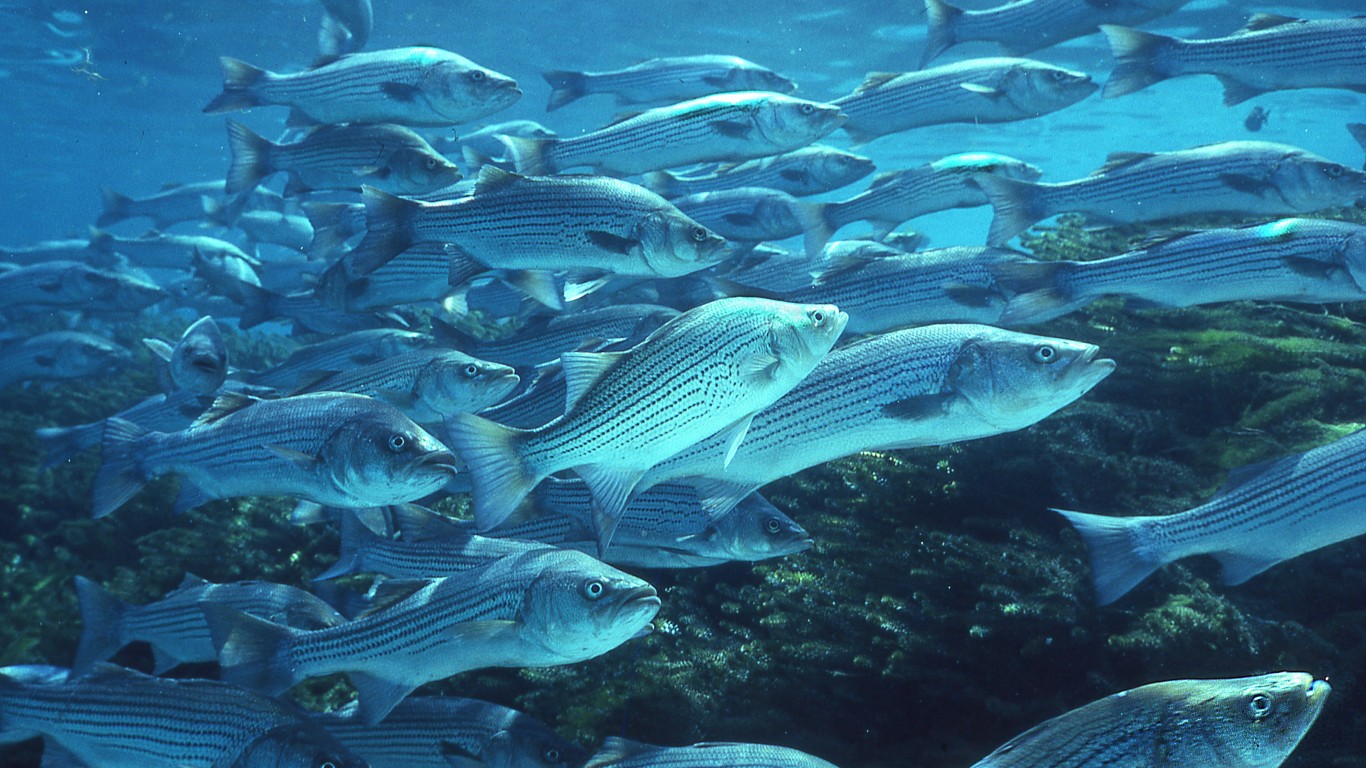
- Weight: 42.24 Pounds
- Catch Location: Apalachicola River, Gadsden
- Date: December 14, 1993
- Angler: Alphonso Barnes
4. Channel Catfish
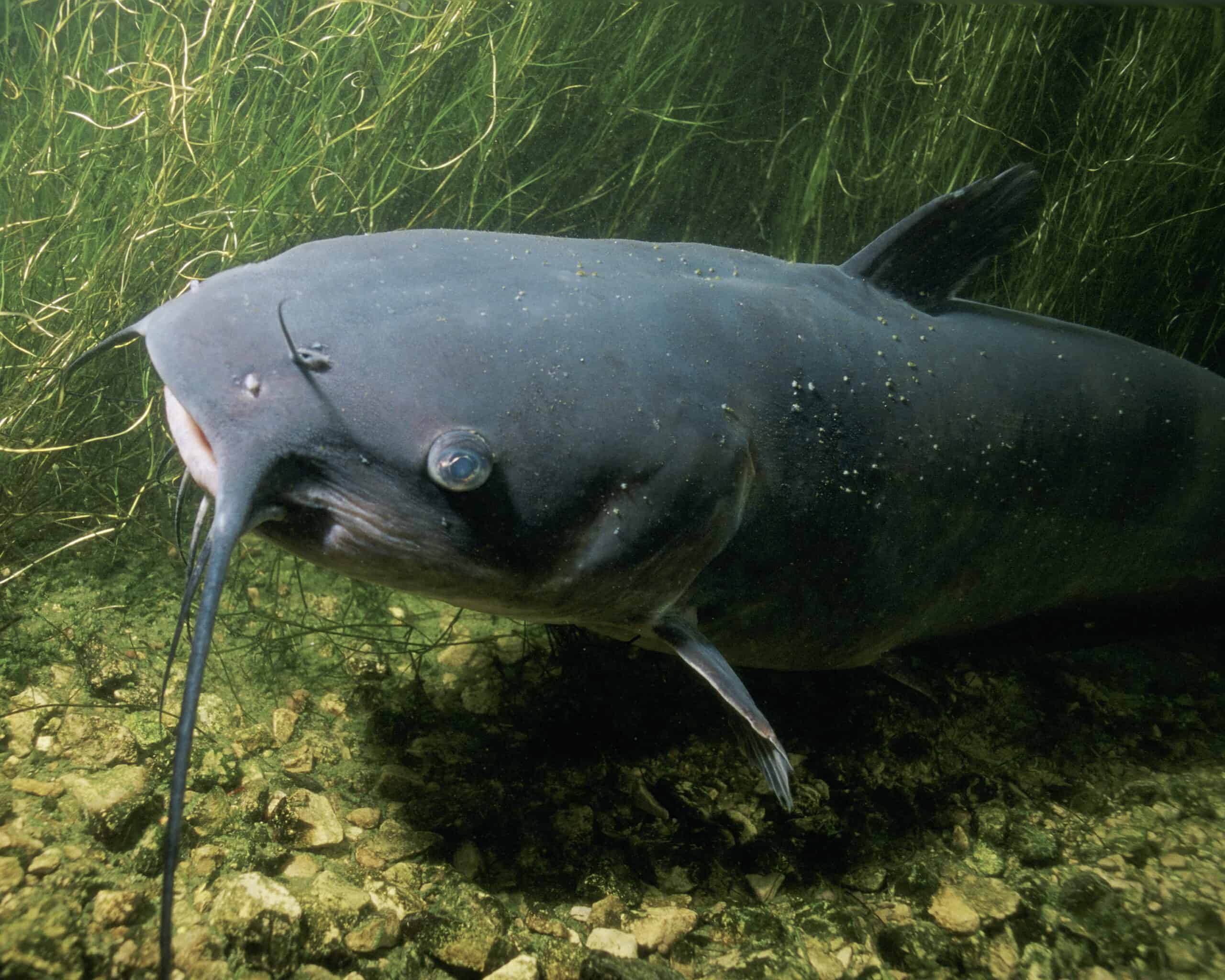
- Weight: 44.5 Pounds
- Catch Location: Lake Bluff, Lake County
- Date: May 19, 1985
- Angler: Joe Purvis
3. Blue Catfish
- Weight: 69.5 Pounds
- Catch Location: Choctawhatchee River, Washington County
- Date: May 30, 2015
- Angler: William Stewart III
2. Flathead Catfish
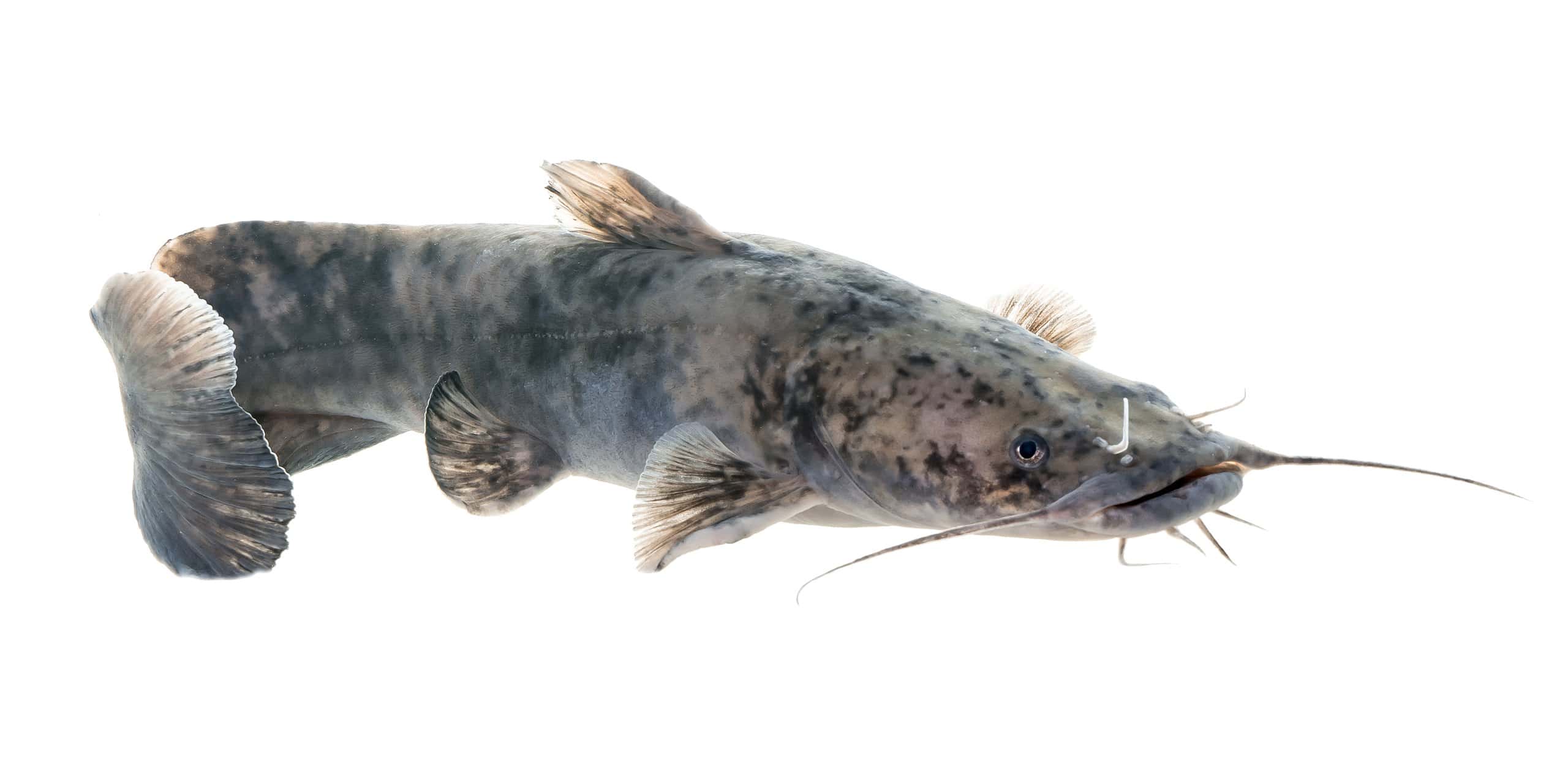
- Weight: 69.9 Pounds
- Catch Location: Yellow River, Santa Rosa County
- Date: August 26, 2020
- Angler: Lavon Nowling
1. Alligator Gar
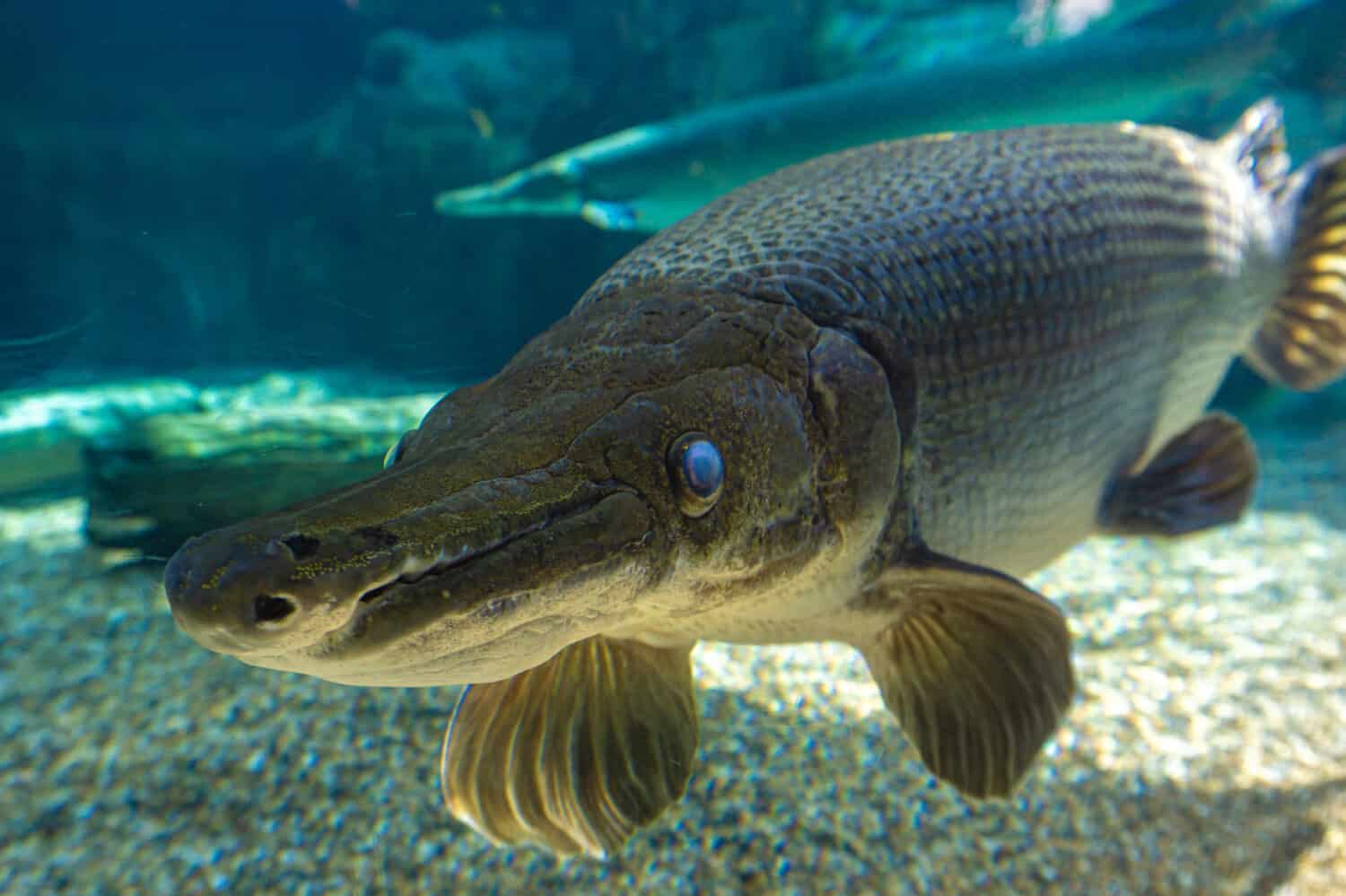
- Weight: 123 Pounds
- Catch Location: Choctawhatchee River, Walton County
- Date: July 8, 1995
- Angler: Zachary Phillips
This alligator gar caught in 1995 is the largest freshwater fishing record in Florida. However, a larger alligator gar weighing 132 pounds was captured in the Yellow River in 2011 by U.S. Fish and Wildlife Service and FWC researchers. While it is not included in recreational fishing records, it is the largest freshwater fish ever documented in Florida.
Facts About Florida’s Largest Freshwater Catch
The alligator gar is the largest of the gar species. It is sometimes known as a “living fossil.” Alligator gar have been traced back 100 million years in the fossil record. Though the fish has a fearsome prehistoric appearance, it is docile and poses no threat to people. There has never been a documented case of an alligator gar attack on a human. The only real risk posed by an alligator gar is experienced by anglers who reel in these monster-sized fish. Along with two rows of sharp canine teeth, the alligator gar is also covered with sharp diamond-shaped bony scales. These scales can easily cut a careless angler.
Alligator gar feed on fish primarily, but they will also predate ducks and other water fowl. The alligator gar will scavenge for dead fish and other animals, as well. This gar is one of the few native U.S. freshwater fish large enough to prey on invasive Asian carp species, making it an invaluable resource to provide at least some control over the spread of these destructive fish.
The alligator gar has a modified swim bladder that allows the fish to breath both water and air. This adaptation means alligator gar can survive in virtually any water condition. It has a higher salt tolerance than any other gar. However, habitat loss has greatly restricted the alligator gar in Florida. Today, the only known populations of alligator gar in the state are found in the Panhandle, stretching from Gulf County to Escambia County.
Saltwater Fish
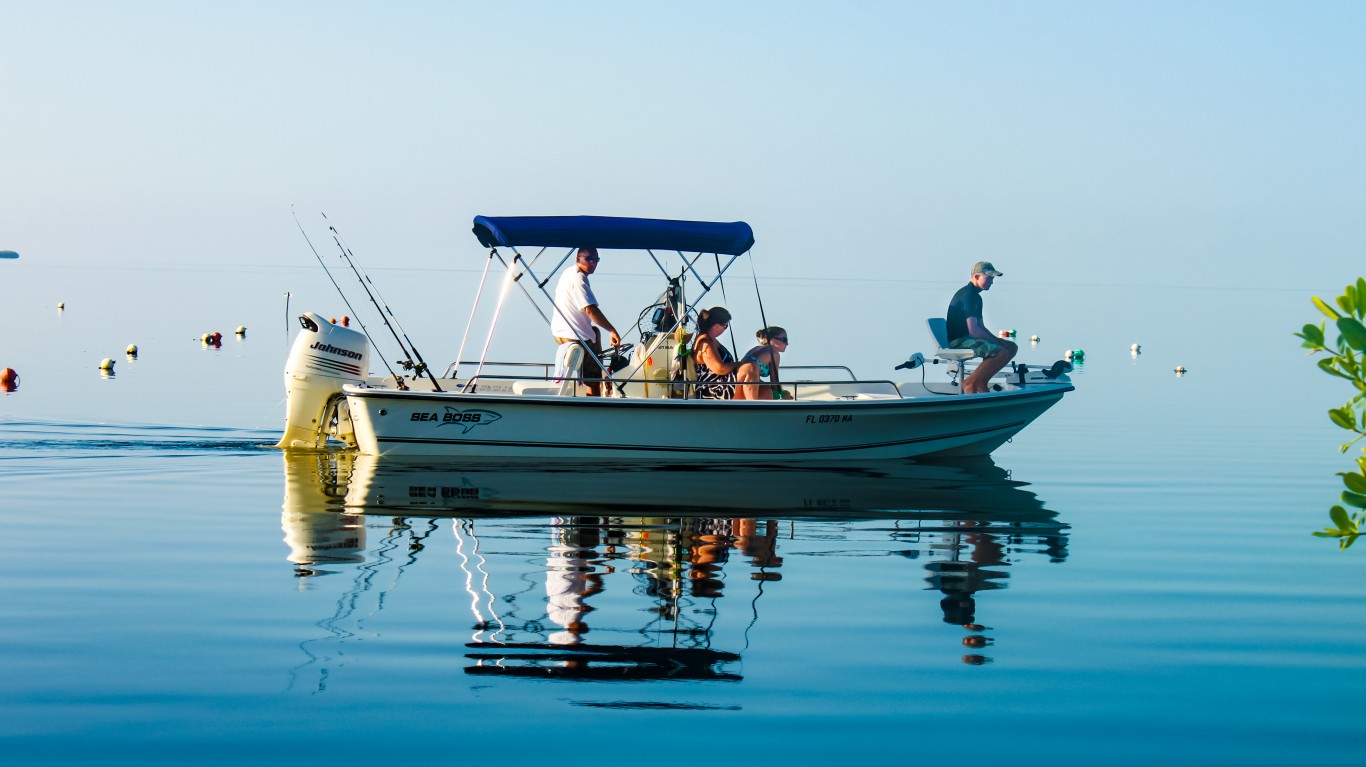
With easy access to the Atlantic Ocean and the Gulf of Mexico, Florida is a hotspot for saltwater fishing. The state has yielded some giant saltwater fish, including several world records. Here is a list of every saltwater record in Florida weighing over 200 pounds, including the largest fish of any species ever caught in the Sunshine State.
15. Yellowfin Tuna
- Weight: 240 Pounds
- Catch Location: Key West
- Date: December 5, 2002
- Angler: Michael Delph
14. Tarpon
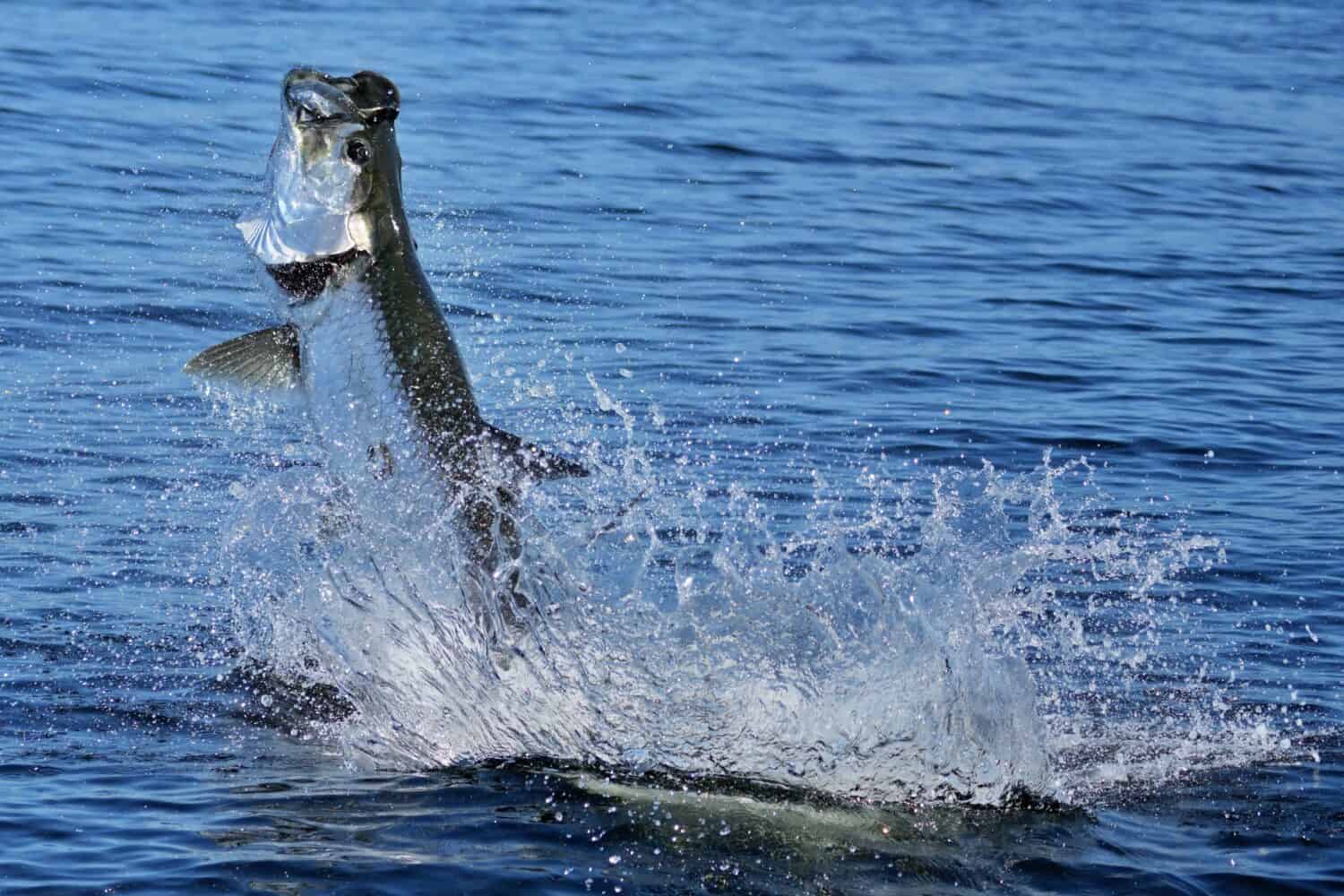
- Weight: 243.19 Pounds
- Catch Location: Key West
- Date: February 17, 1975
- Angler: Gus Bell
13. Lemon Shark
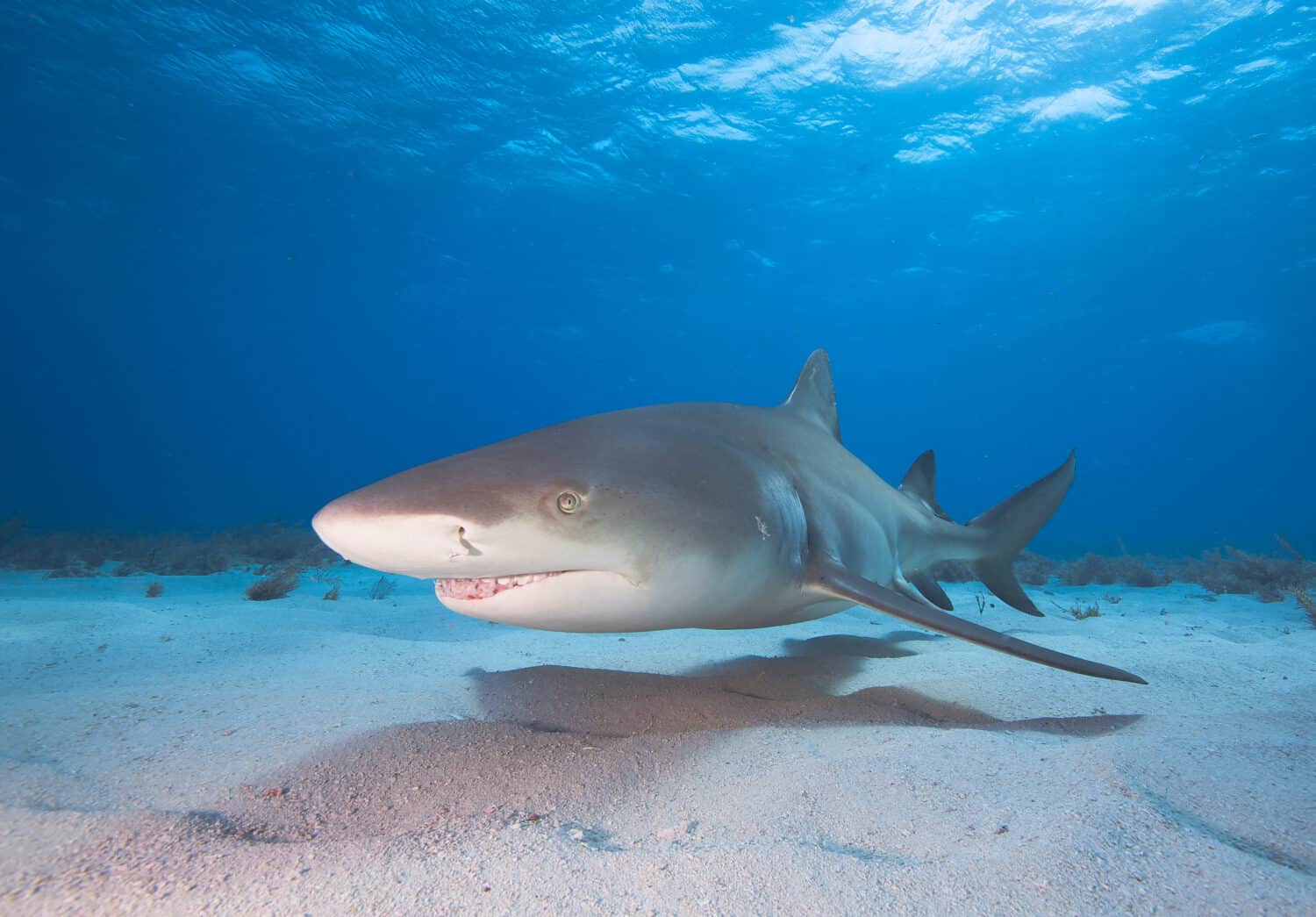
- Weight: 397.44 Pounds
- Catch Location: Dunedin
- Date: April 29, 1977
- Angler: Richard M. Guccione
12. Warsaw Grouper
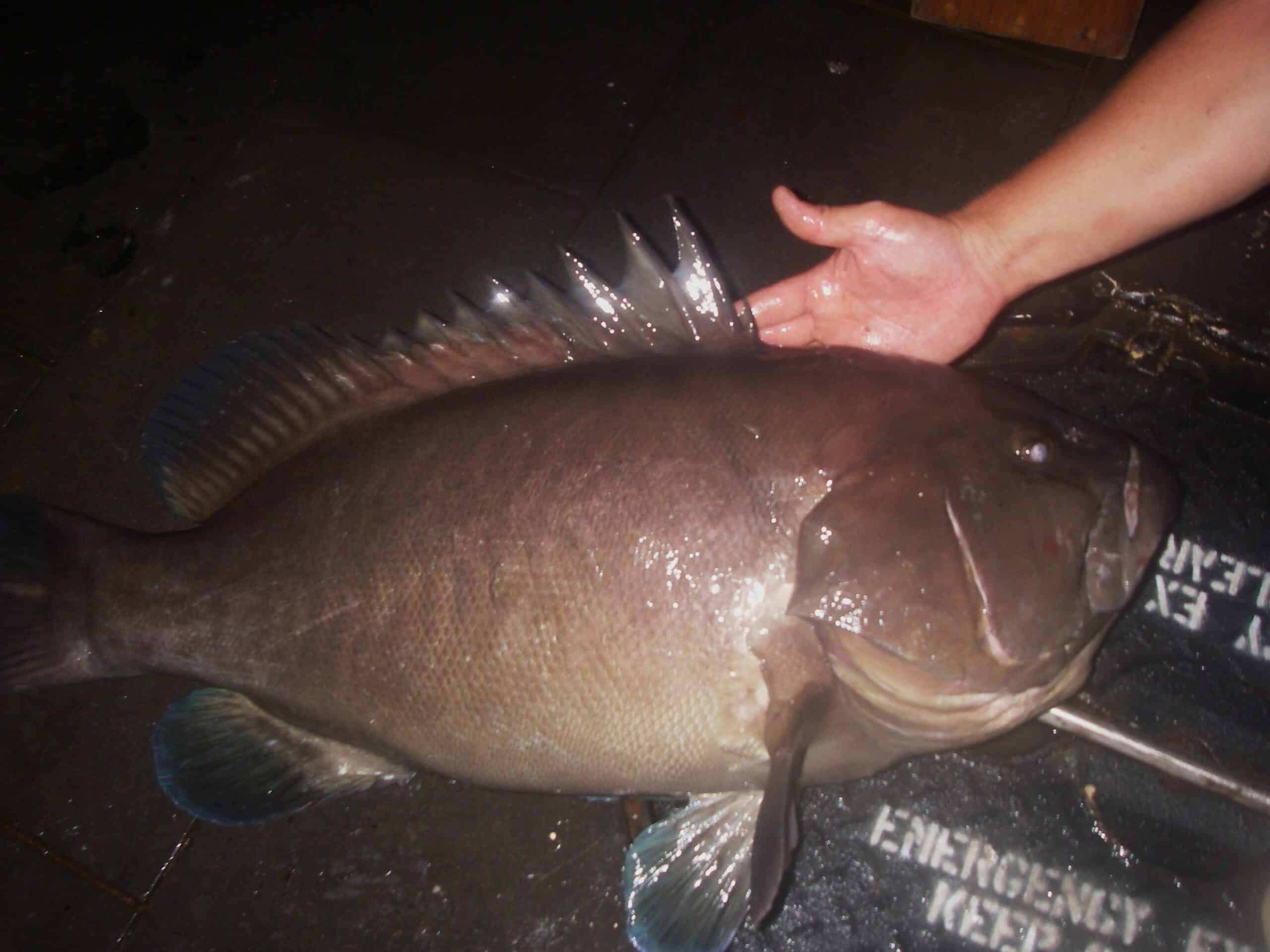
- Weight: 436.75 Pounds
- Catch Location: Destin
- Date: December 22, 1985
- Angler: Steve Haeusler
Florida’s state record Warsaw grouper is also the current world record.
11. Bull Shark
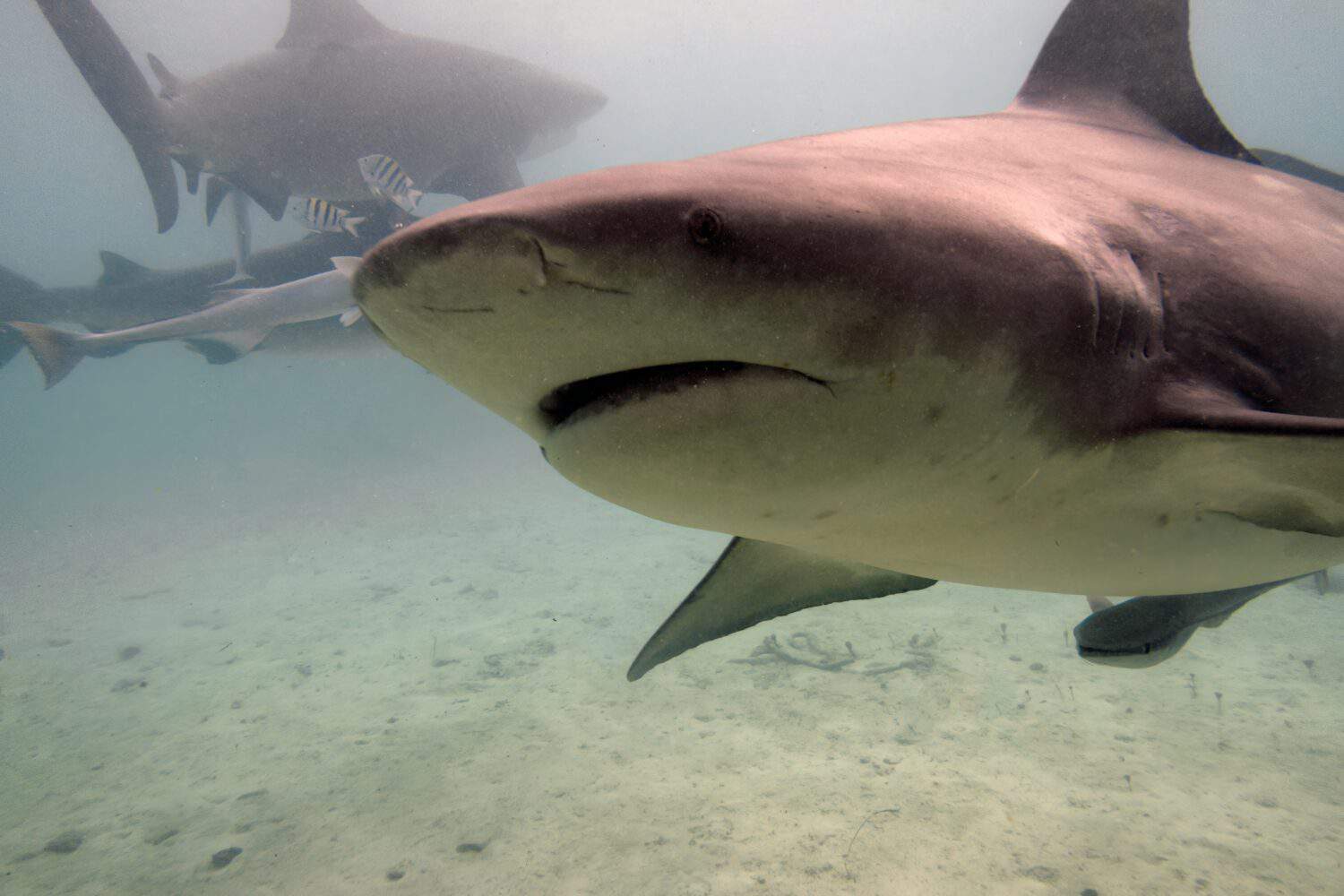
- Weight: 517.44 Pounds
- Catch Location: Panama City Beach
- Date: October 1, 1981
- Angler: Gregory K. Burnett
10. Common Thresher Shark
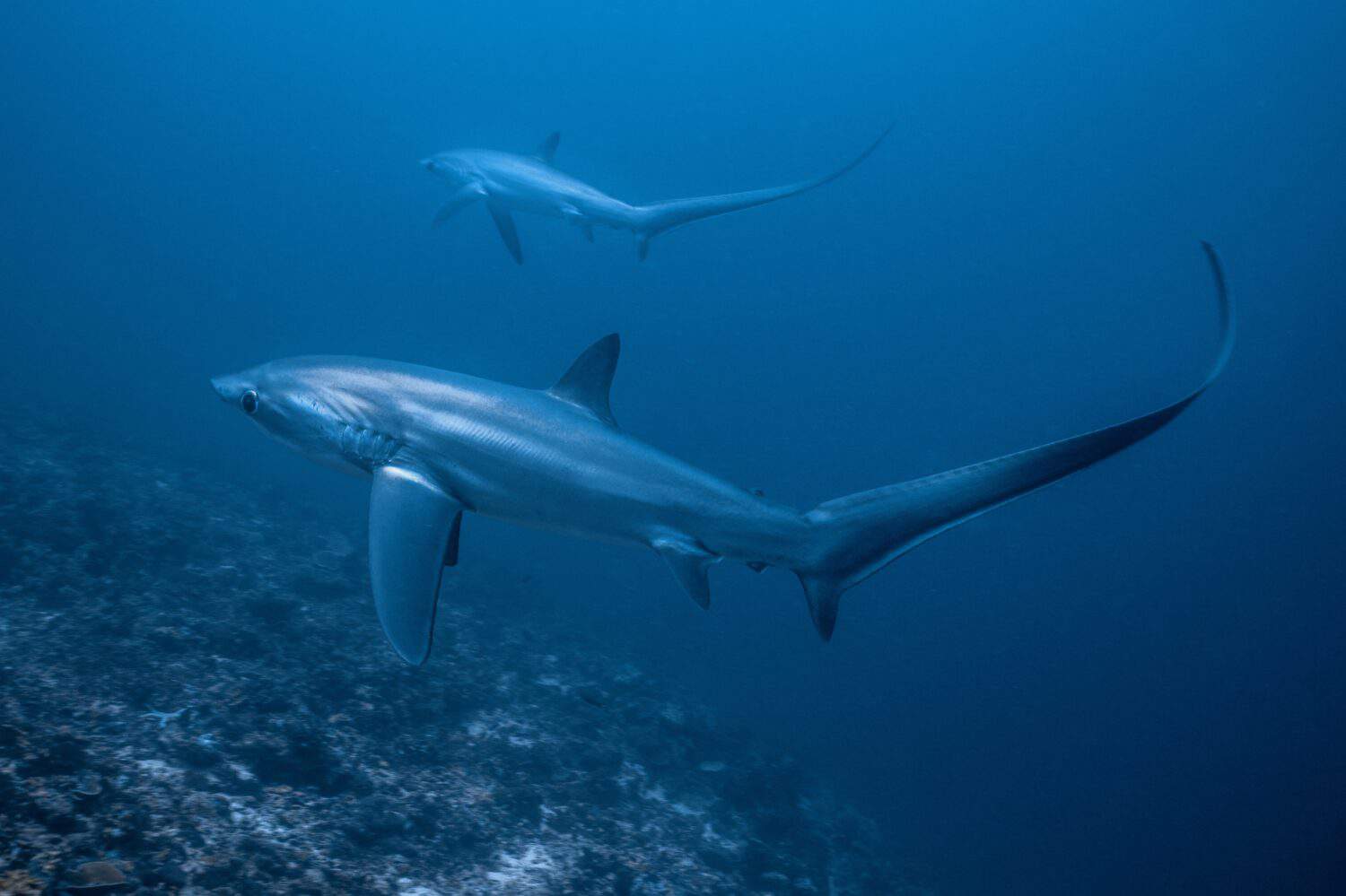
- Weight: 544.5 Pounds
- Catch Location: Destin
- Date: September 15, 1994
- Angler: James Weil
9. Swordfish
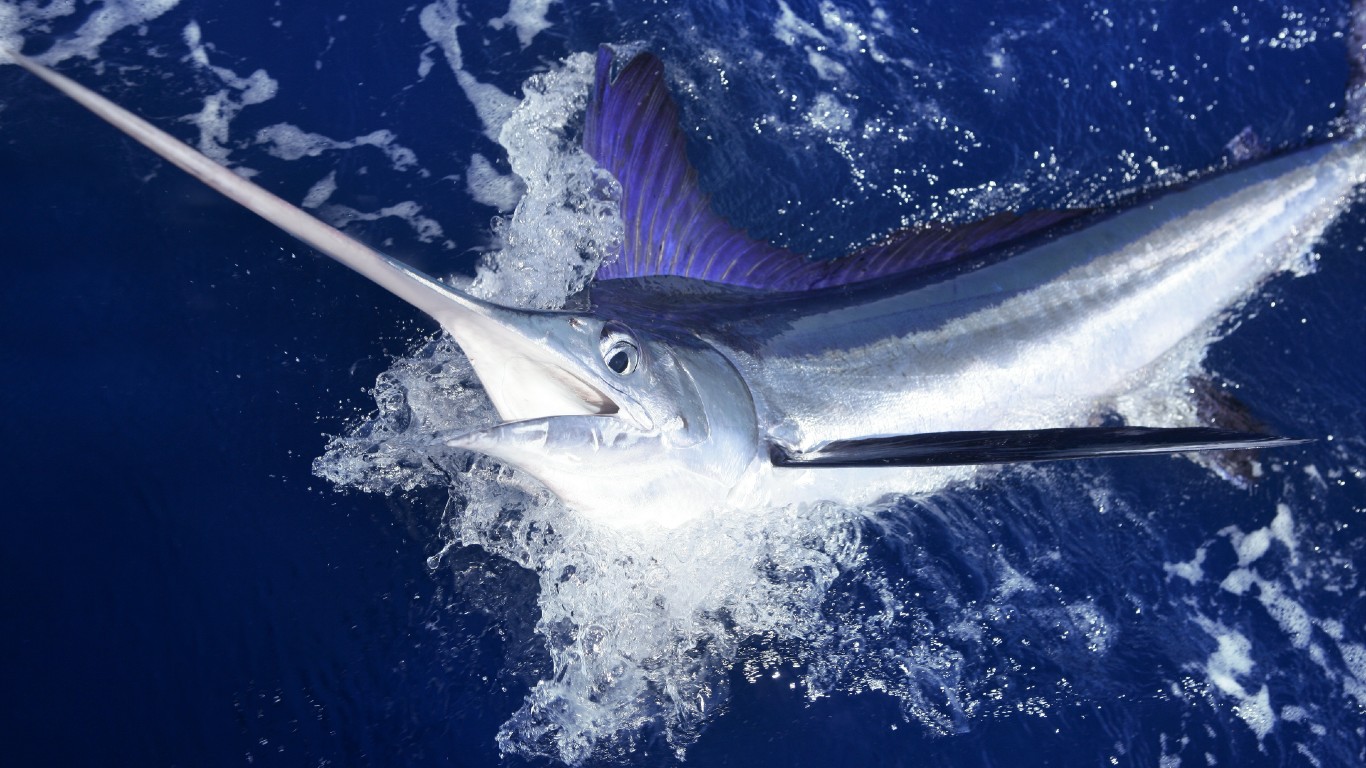
- Weight: 612.75 Pounds
- Catch Location: Key Largo
- Date: May 7, 1978
- Angler: Stephen Stanford
8. Goliath Grouper

- Weight: 680 Pounds
- Catch Location: Fernandina Beach
- Date: May 20, 1961
- Angler: Lynn Joyner
Florida’s state record Goliath grouper is also the current world record.
7. White Shark
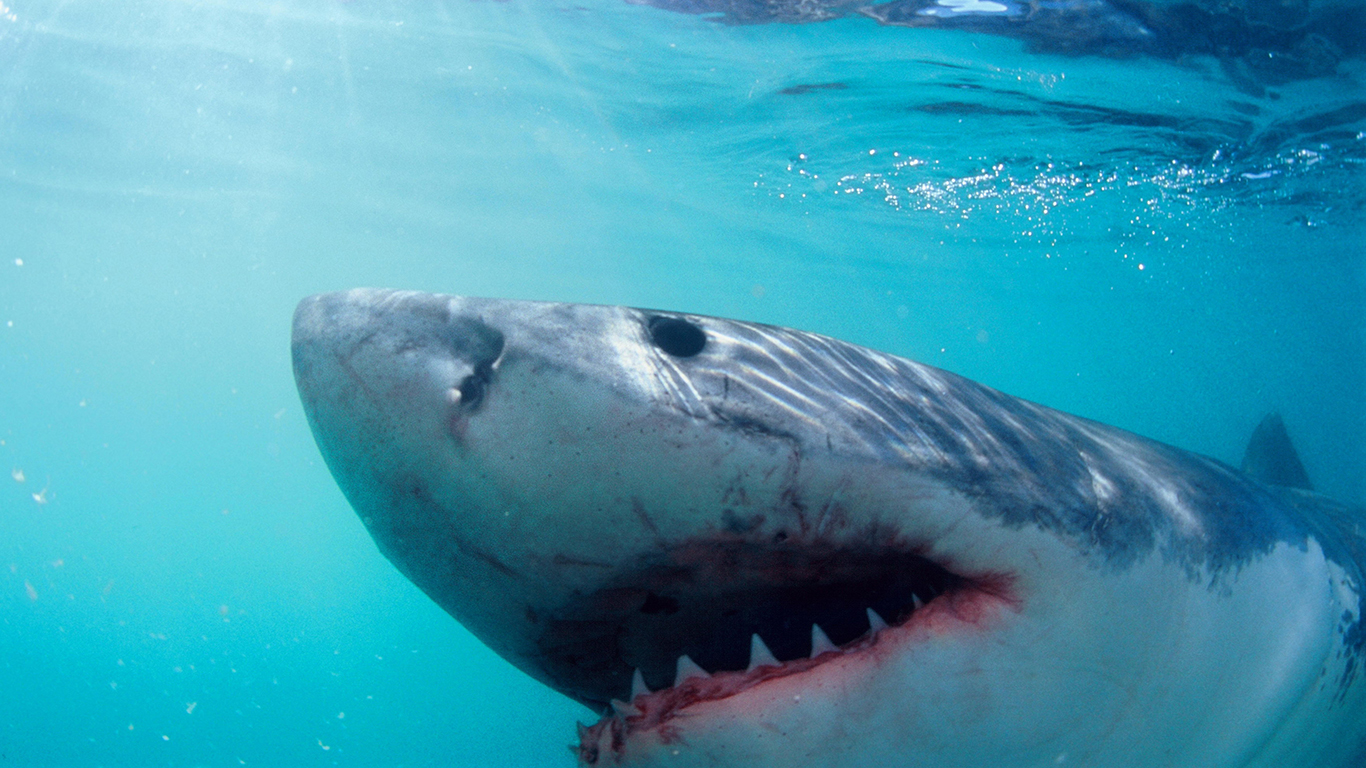
- Weight: 686.38 Pounds
- Catch Location: Key West
- Date: April 30, 1988
- Angler: Richard P. DeAngelis
6. Dusky Shark
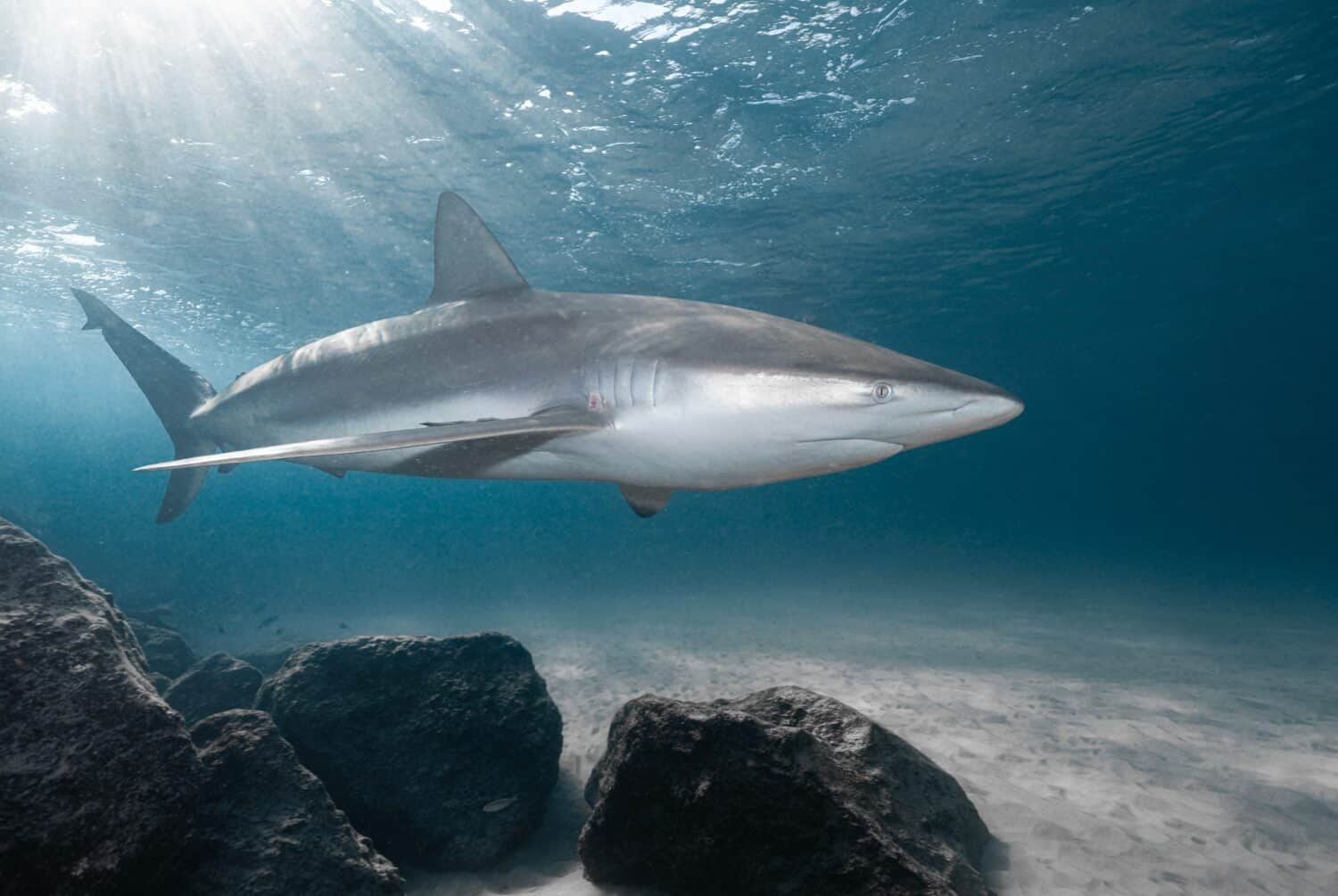
- Weight: 764.25 Pounds
- Catch Location: Longboat Key
- Date: May 28, 1982
- Angler: Warren Girle
Florida’s state record dusky shark is also the current world record.
5. Bluefin Tuna
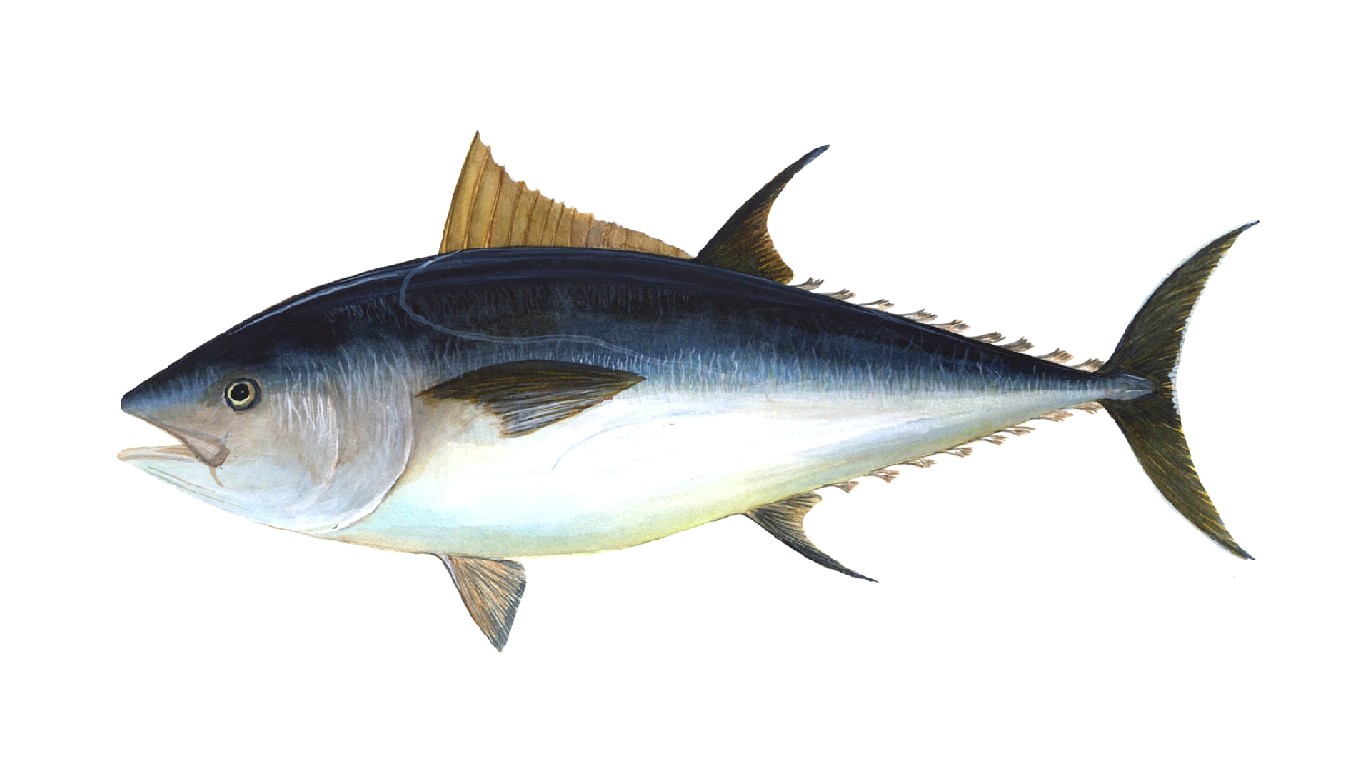
- Weight: 826.5 Pounds
- Catch Location: Gulf of Mexico
- Date: May 8, 2017
- Angler: Rick Whitley
4. Mako Shark
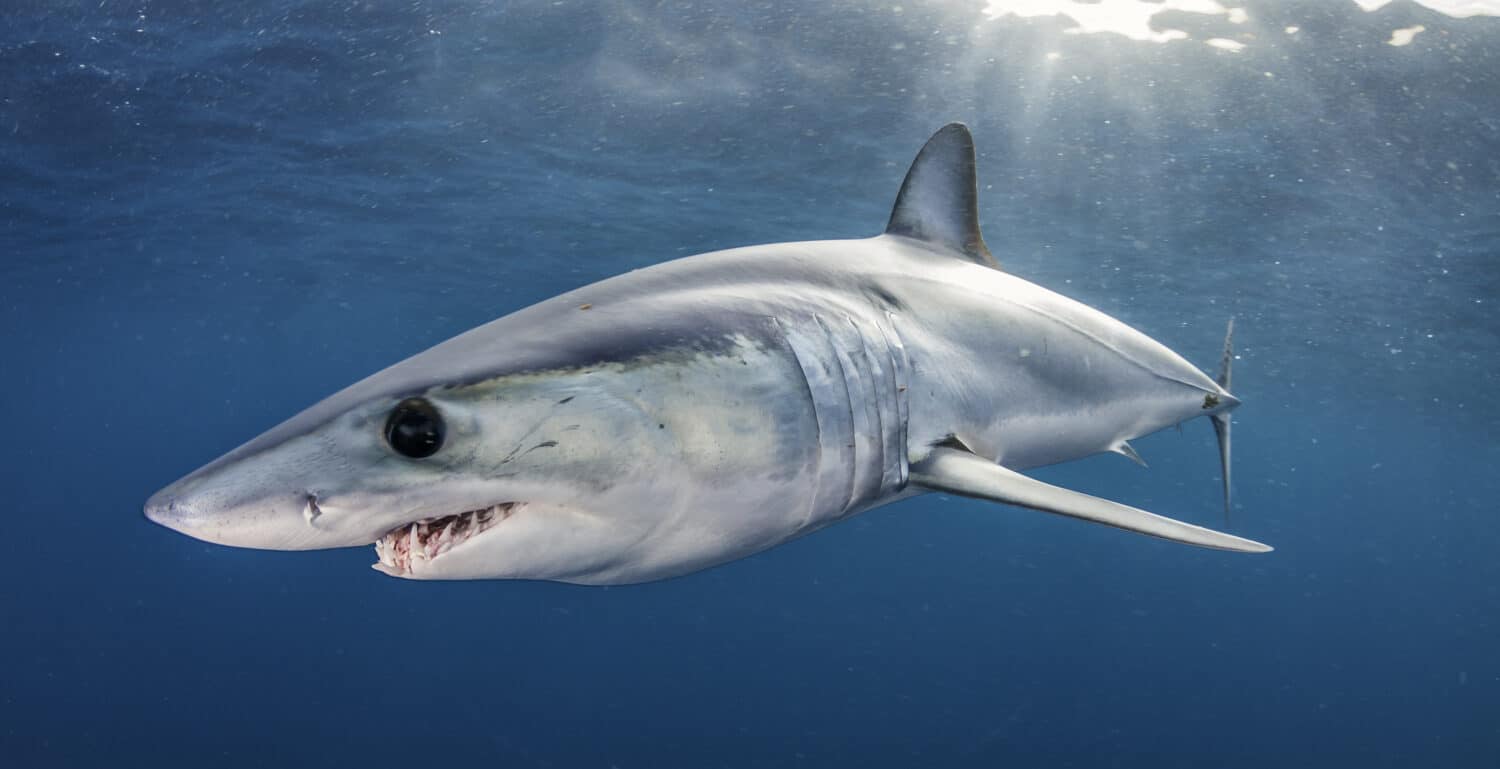
- Weight: 911.75 Pounds
- Catch Location: Palm Beach
- Date: April 9, 1962
- Angler: Audrey Cohen
3. Blue Marlin
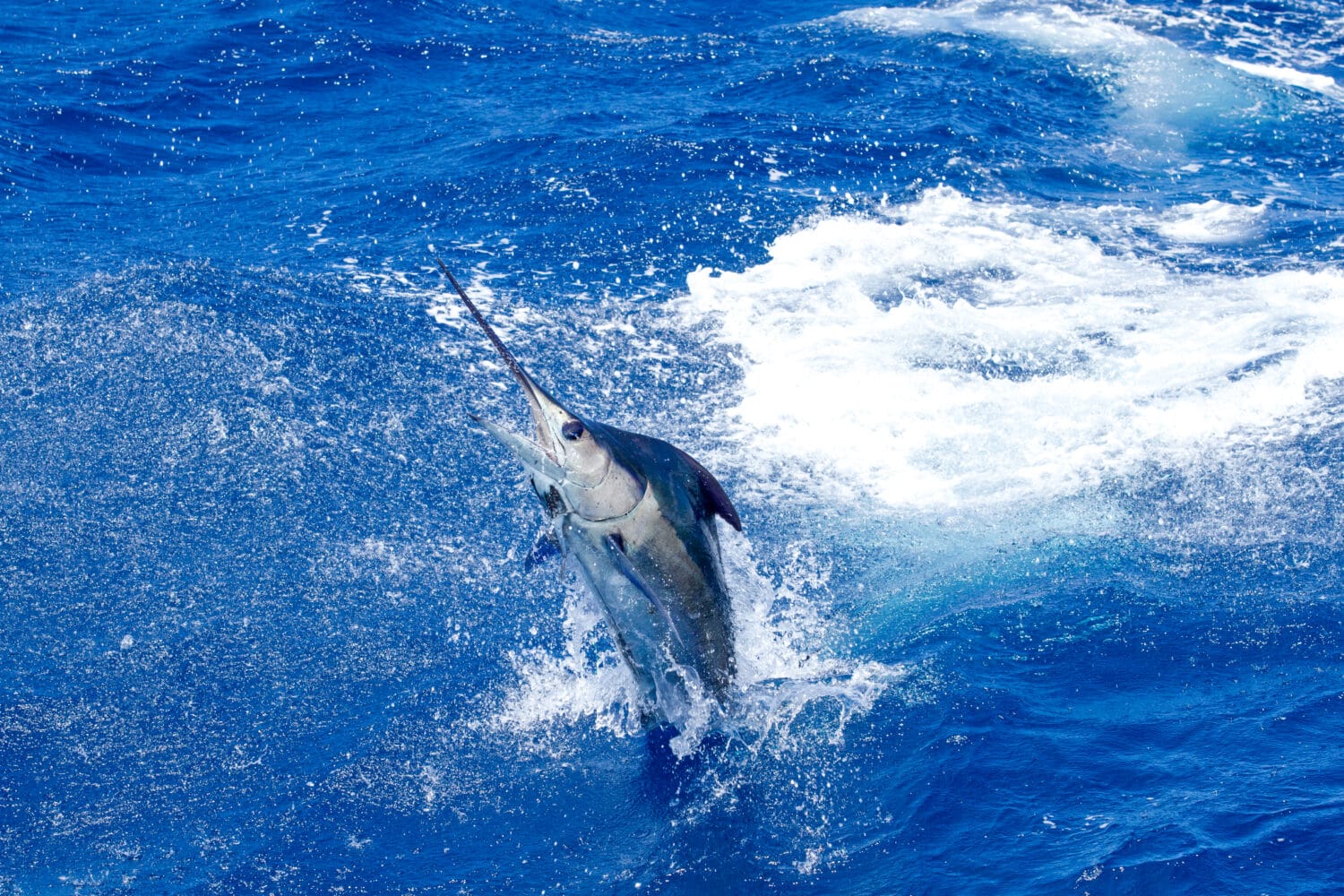
- Weight: 1,046 Pounds
- Catch Location: Panama City
- Date: July 14, 2001
- Angler: Conrad E. Hawkins
2. Hammerhead Shark
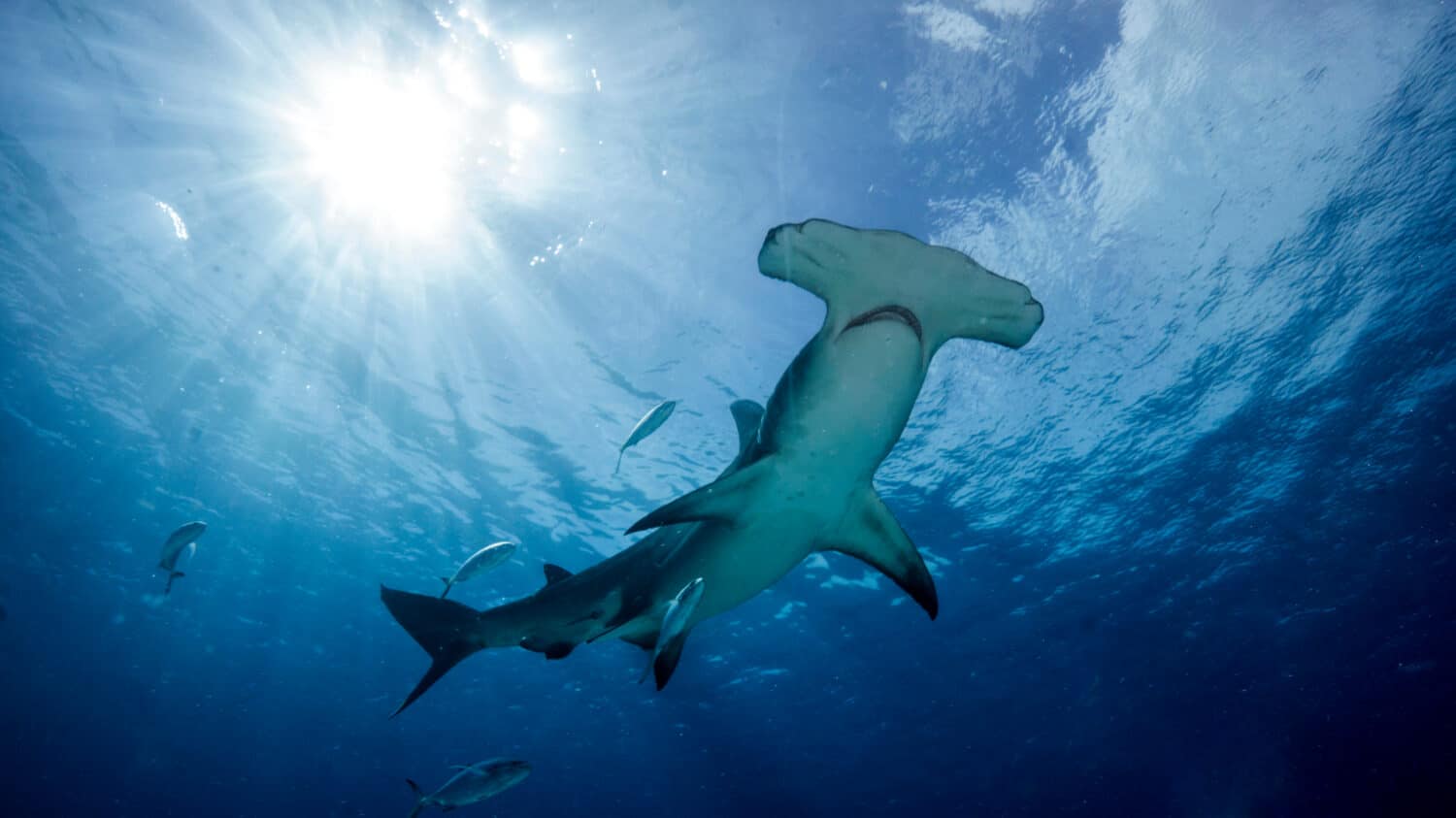
- Weight: 1,063.75 Pounds
- Catch Location: Boca Grande
- Date: May 5, 2009
- Angler: Capt. Bucky Dennis
1. Tiger Shark
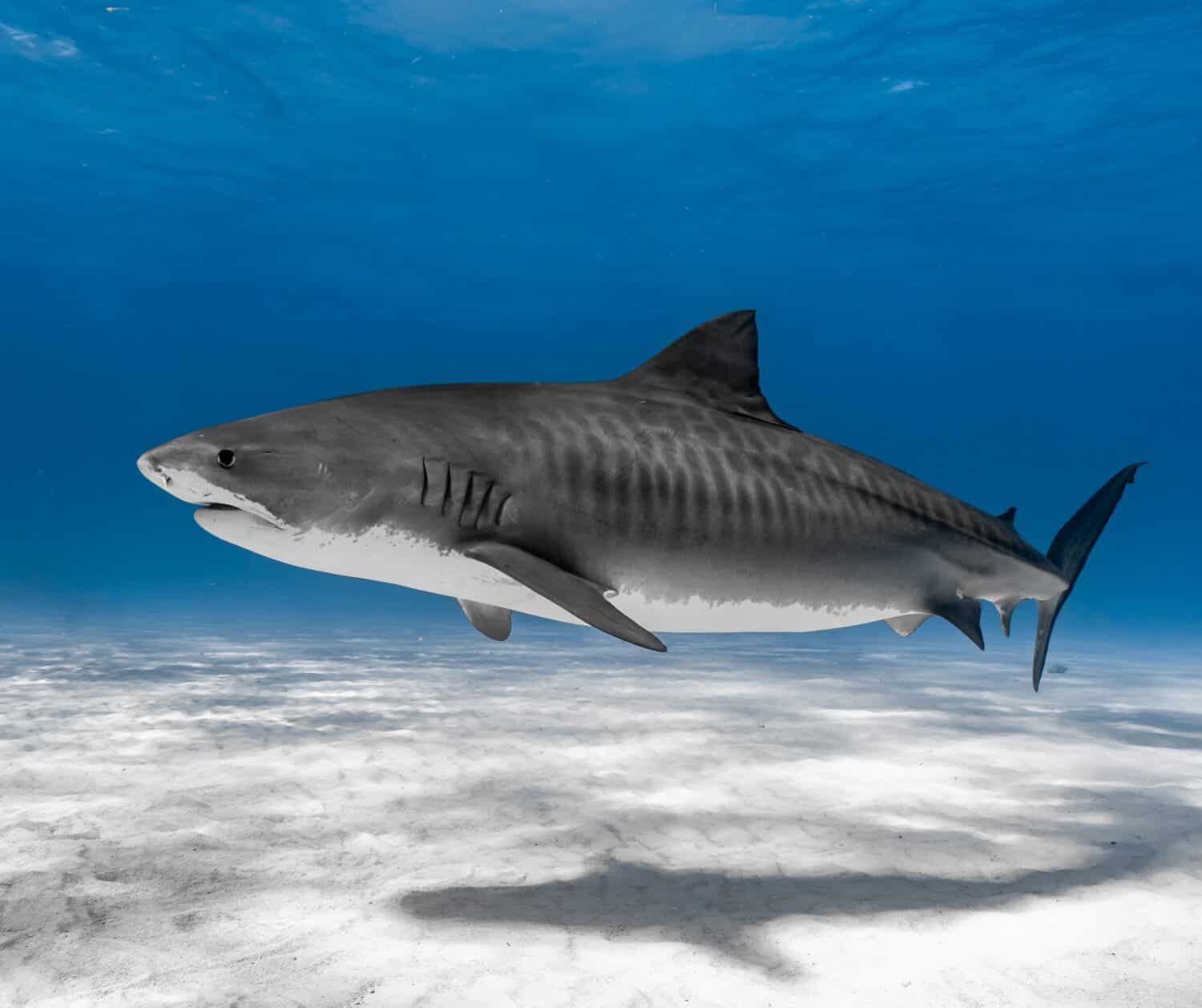
- Weight: 1,069.06 Pounds
- Catch Location: Pensacola
- Date: June 20, 1981
- Angler: Richard Baggs
This tiger shark caught in 1981 is the largest documented catch of any fish species, fresh or saltwater, in the state of Florida.
Facts About Florida’s Largest Saltwater Catch
The tiger shark is one of the world’s largest sharks. It is named for the dark stripes along its sides, similar to those of a tiger. Those stripes fade as the shark ages, though.
This shark has an insatiable appetite and will eat virtually anything. Its diet is the largest and most varied of any shark in the world. A short list of some of the tiger shark’s prey includes fish, marine birds, sea turtles, rays, squid, porpoises, conchs, crabs, lobsters, skates, marine mammals, and even other sharks. The tiger shark has been nicknamed “the garbage can of the sea” due to its indiscriminate eating habits. Along with their natural prey, tiger sharks have been known to consume garbage such as license plates, chicken wire, barrels, cans, burlap bags, and tires.
Tiger sharks are common throughout Florida. These sharks can be found in river mouths, coastal waters, and the open ocean.
Tiger sharks are among the most aggressive sharks in the state’s waters. While the risk of an attack by any shark species is quite low, Florida is home to more shark bites on humans than anywhere else on Earth. Swimmers can take steps to avoid a shark encounter, such as refraining from bathing suits that are metallic or flashy. Sharks may mistake the sun’s reflection off this material as a fish. Also, never swim near anglers as their lures or bait may draw sharks into the area. Finally, obey all warnings from local officials regarding shark activity.
In 20 Years, I Haven’t Seen A Cash Back Card This Good
After two decades of reviewing financial products I haven’t seen anything like this. Credit card companies are at war, handing out free rewards and benefits to win the best customers.
A good cash back card can be worth thousands of dollars a year in free money, not to mention other perks like travel, insurance, and access to fancy lounges.
Our top pick today pays up to 5% cash back, a $200 bonus on top, and $0 annual fee. Click here to apply before they stop offering rewards this generous.
Flywheel Publishing has partnered with CardRatings for our coverage of credit card products. Flywheel Publishing and CardRatings may receive a commission from card issuers.
Thank you for reading! Have some feedback for us?
Contact the 24/7 Wall St. editorial team.

